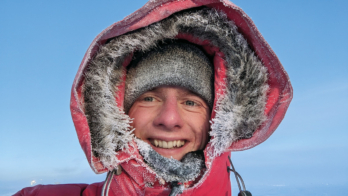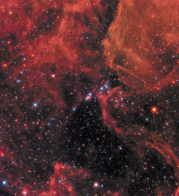
An experiment in Korea designed to search for light sterile neutrinos has published its first results, further constraining the possible properties of such a particle. Even though the number of light neutrinos cannot exceed three, it is still possible to have additional neutrinos if they are “sterile”. Such particles, which are right-handed singlets under the electromagnetic, strong and weak interactions, are predicted by extensions of the Standard Model and would reveal themselves by altering the rate of oscillation between the three standard neutrino flavours. An early hint for such a state came from observations of the mixing between electron and muon neutrinos by the LSND experiment, although more recent results from other experiments are so far inconclusive.
The NEOS detector is a Gd-loaded liquid scintillator located just 24 m from the core of the 2.8 GW Hanbit nuclear power plant in South Korea, which generates a high flux of antineutrinos. Based on precise measurements of an antineutrino energy spectrum over an eight-month period, the NEOS team found no evidence for oscillations involving sterile neutrinos. On the other hand, the team recorded a small excess of antineutrinos above an energy of around 5 MeV that is consistent with anomalies seen at longer-baseline neutrino experiments.
With no strong evidence for “3 + 1” neutrino oscillations, the new results set stringent upper limits on the θ14 mixing angle (see figure) of sin22θ14 less than 0.1 for Δm241 ranging from 0.2–2.3 eV2 at 90% confidence level. The results further improve the constraints to the LSND anomaly parameter space, say the team. With the NEOS experiment now completed, the team is discussing a further reactor neutrino programme using commercial reactors to be built in the near future in Korea.





